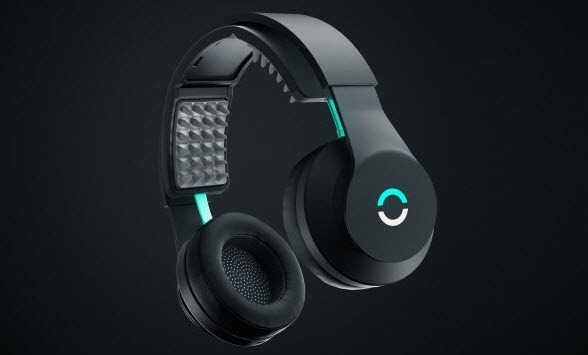 Avid cyclist Dan Chao trains on a stationary bike while wearing a pair of trendy-looking headphones that he claims stimulates his brain and helps him improve his performance on his real bike.
Avid cyclist Dan Chao trains on a stationary bike while wearing a pair of trendy-looking headphones that he claims stimulates his brain and helps him improve his performance on his real bike.
Though it may sound too good to be true, Chao is a cofounder and the CEO of a startup called Halo Neuroscience, which recently released “neurostimulating” headphones, called Halo Sport.
Here’s how the headphones work:
The headphones contain two electrodes that deliver a very small amount of electric current to the wearer’s head, aimed at the neurons in the motor cortex, a brain region that coordinates movement.
Chao says that the mild stimulation essentially makes it “slightly easier for the neurons to fire.” In theory, that causes them to form more new connections. Chao says the company’s research data suggests this effect can be used to help athletes get more out of their training.
RELATED: The 5 best ways to lose belly fat
Is the claim feasible?
In the past 15 years, scientists have shown that such mild stimulation can indeed make neurons more or less likely to fire, and have produced some promising evidence that the technology could be used to do things like improve cognition, aid in stroke recovery, and make people better at learning motor skills.
RELATED: It’s amazing what one more glass of water can do
The controversy
Researchers are hotly debating whether or not it’s responsible to market this technology to consumers. Some argue that the existing science doesn’t support claims that the technology can enhance something as complicated as athleticism, and that selling consumers on the idea could be unsafe.
RELATED: Major study touts benefits of testosterone therapy – with some caveats
The company has secured $9 million in venture capital from Silicon Valley firms, and is offering the Halo Sport to elite athletic teams and organizations, which can buy a “service package” that includes specific training programs. Its first customer was the U.S. military.
Chao says Halo is only claiming its device can provide benefits when paired with rigorous training. It’s just “one tool in an athlete’s tool chest,” he says. “You still have to put in the work.
Curated articles and image from:
MIT Technology Review and Halo Neuro


